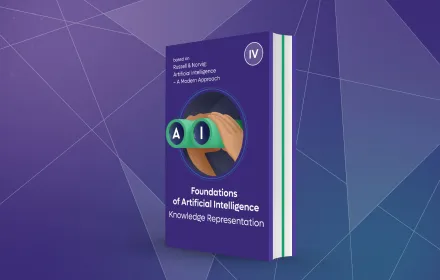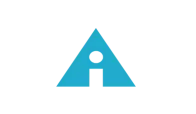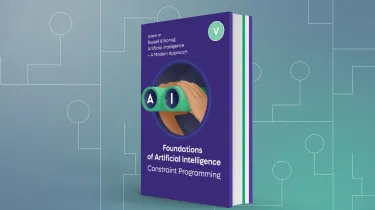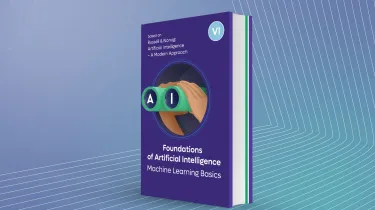Methods of AI IV – Knowledge Representation
This course explores the capabilities and limitations of logic for the representation of conceptual and factual knowledge in ontologies.

Overview
AI agents need to represent knowledge about abstract concepts and specific individuals to act successfully in complex environments and to answer many practical questions.
For decades, AI has studied knowledge representation by using sublanguages of first-order predicate logic, called description logics. This course summarizes the research in this field and illustrates the capabilities and limitations of description logics for practical applications. Classical unsolved AI problems such as the frame problem and the revision of beliefs are discussed.
The course reviews initiatives such as the semantic web as well as early attempts to standardize modern graph databases and their query languages. The material helps to understand why modern graph databases can represent huge sets of facts about individuals and their relationships, but do not yet provide reasoning capabilities and what it will take in the future to add these capabilities.
This course is partially based on chapter 10 of the textbook by Stuart Russell and Peter Norvig: Introduction to Artificial Intelligence - A Modern Approach but extends the topic with comprehensive additional material.
The course is held in English language with German subtitles.
Which topics will be covered?
- Conceptual knowledge, ontologies and taxonomies
- Description logic systems, ABox and TBox representations
- Description Logic ALC (syntax, semantics, computational properties)
- Conceptual reasoning services and reduction to satisfiability checking
- Web ontologies and the Semantic Web, RDF, OWL, SPARQL
- The Frame problem in AI
- Non-monotonic reasoning and belief revision
What will I achieve?
By the end of the course, you‘ll be able to
- distinguish different types of knowledge,
- understand conceptual knowledge representation, its capabilities and limitations,
- discuss reasoning services combining ontologies and facts about individuals,
- reflect on AI efforts for the semantic web and ontology standardization,
- understand limitations of ontology representations when dealing with exceptions and knowledge base revisions.
Which prerequisites do I need to fulfill?
A good understanding of logic is a prerequisite to follow the theoretical material of this course. The course “Methods of AI III – Logical Reasoning” provides a good introduction to logic. Historic discussions and practical examples can be followed without a background in logic.







